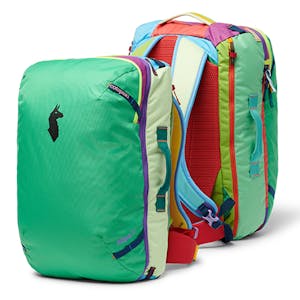Hyponatremia is, quite simply, the result is drinking too much water and sweating out too much salt (sodium), which causes a low concentration of sodium in our blood. This is generally a pretty rare occurrence in normal circumstances but is way more of a risk to people undertaking endurance sports or long sustained efforts where electrolytes are not properly replaced but plain water is still consumed. Hot, humid temperatures add to this risk.
Prolonged, excessive sweating can alter the level of the sodium in the blood. The sodium is sweated out making it really important to replace these loses during long sustained exercise such as endurance events, climbing or even long tramps in hot weather.
An adequate sodium balance is required for a whole range of reasons so replacing sodium during exercise is essential to keep your body performing and safe.
The first warning signs of hyponatremia include slurred speech, nausea, confusion, muscle cramps, changes in behaviour and thirst.
As the problem progresses the brain can start to swell which can result in seizures, coma and, eventually, death.
As with many conditions prevention is better than cure. Here are a few tips to help prevent hyponatremia:
- If you are exercising at a moderate to high intensity for more than 90 minutes, you will want to consume more than plain water. You need to replenish your sodium and glycogen stores. Sports drinks can be an easy way to add the necessary and energy.
- As a guide, try and drink about a cup of water every 20 minutes when you are exercising intensely.
- Avoid nonsteroidal anti-inflammatory drugs (ibuprofen, Voltaren etc) during long prolonged efforts. Although some of these carry sodium they have been show to increase the risk of hyponatremia.
- Make sure you have adequate sodium in your diet if you exercise a lot. Bear in mind that New Zealanders consume twice as much sodium as is required which contributes to our high heart disease rate! So try to be aware of what you eat and what your body needs.
Hyponatremia can be life threatening without doubt. Once the sodium balance has been tipped to far there is little we as first aiders can do in the field and a quick evacuation is essential. Therefore awareness and prevention are our best tools.
-Mark Woods






